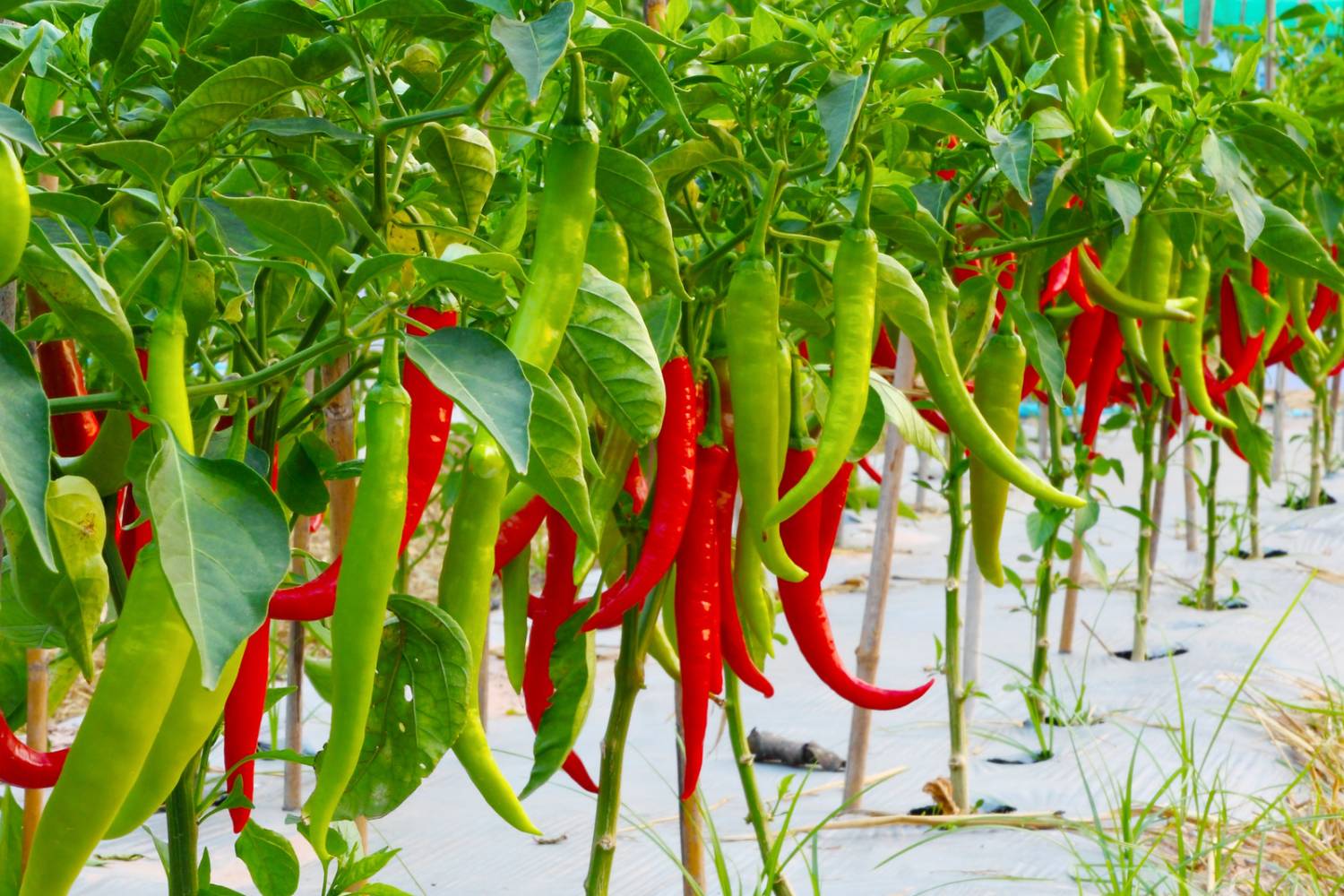Best Fertilizers for Peppers: Take Full Advantage Of Plant Health and Return
Organic Vs. Synthetic Fertilizers: Which Is Best for Nurturing Healthy And Balanced Pepper Plants?
In the world of supporting healthy pepper plants, the selection in between synthetic and organic fertilizers stands as a critical choice with far-reaching ramifications. While both choices aim to give essential nutrients to sustain plant development, the subtleties of their effect on the dirt, plant wellness, and the setting stimulate a dispute that echoes throughout the horticulture area. Recognizing the distinct benefits and prospective risks of each plant food kind is crucial for pepper growers looking for to enhance their returns while preserving a lasting and eco-conscious approach.
Benefits of Organic Plant Foods
Organic fertilizers use an environmentally-friendly and lasting approach to nourishing pepper plants, supplying essential nutrients without the usage of synthetic chemicals. These natural plant foods are stemmed from organic sources such as garden compost, manure, bone meal, and algae, promoting soil health and biodiversity. Unlike artificial fertilizers, organic options launch nutrients slowly, making certain a consistent and well balanced supply for pepper plants to grow.
One substantial advantage of organic plant foods is their capacity to improve soil structure and water retention. By boosting dirt health, natural plant foods promote useful microbial activity, which assists in nutrient uptake by pepper plants. Additionally, organic plant foods lower the threat of chemical run-off, securing water sources from air pollution and securing the environment.
In addition, organic fertilizers add to long-lasting dirt fertility by advertising the growth of advantageous dirt microorganisms. These organisms assist damage down natural matter, releasing nutrients in a type that is conveniently available to pepper plants. best fertilizers for peppers. By promoting a healthy dirt ecosystem, organic fertilizers sustain sustainable pepper cultivation methods that profit both plants and the atmosphere
Drawbacks of Synthetic Fertilizers
Synthetic plant foods, in contrast to their natural equivalents, position various disadvantages when utilized to nourish pepper plants, affecting both plant health and wellness and ecological sustainability. One major downside of artificial plant foods is their propensity to seep nutrients from the soil rapidly.
Furthermore, the overuse of artificial fertilizers can contribute to water contamination. Excess fertilizers not taken in by plants can get rid of into water bodies, leading to eutrophication, where algae flowers diminish oxygen levels in the water, hurting aquatic life. Synthetic plant foods are usually obtained from non-renewable resources, such as fossil fuels, adding to carbon discharges and ecological destruction during their manufacturing.
Nutrient Absorption Comparison
When comparing natural and artificial fertilizers in terms of nutrient absorption, natural plant foods have the advantage of providing a much more well balanced and slow-release source of nutrients. Organic plant foods have a variety of macro and trace elements that are not just helpful for the plants yet also advertise healthy soil microbial activity, which helps in nutrient uptake.
In addition, organic plant foods boost dirt framework and water retention capability, allowing pepper plants to gain access to nutrients a lot more efficiently. This improved dirt quality promotes origin development, allowing much better nutrient absorption. Artificial plant foods, although initially increasing plant development because of their high nutrient focus, may prevent lasting nutrient absorption by derogatory soil wellness gradually.
Ecological Impact Considerations

On the navigate to this website other hand, synthetic fertilizers, although frequently even more concentrated and immediately available to plants, can have damaging results on the setting if not his comment is here applied effectively (best fertilizers for peppers). Their production requires high energy inputs, bring about greenhouse gas emissions and contributing to climate change. The runoff of excess artificial fertilizers can infect water sources, leading to eutrophication and harming water environments.
Best Fertilizer Practices for Peppers
To attain this, it is vital to follow best fertilizer practices customized to the particular needs of pepper plants. One critical method is to perform a soil test prior to applying any type of plant foods.
An additional essential technique is to feed pepper plants at the appropriate time. Generally, peppers profit from obtaining plant food at growing and after that again when they begin to blossom. Over-fertilizing can lead to vitamins and mineral discrepancies and harm the plants, so it is vital to comply with suggested application prices.
Furthermore, picking a balanced fertilizer with an NPK ratio that suits pepper plants' demands is essential. Organic plant foods, such as compost or manure, can be excellent choices as they launch nutrients slowly and boost soil framework gradually. Synthetic plant foods can supply a quick nutrient increase when required. Ultimately, integrating synthetic and organic fertilizers carefully can help nurture healthy and balanced pepper plants while minimizing environmental effect.
Verdict

Organic fertilizers provide an environmentally-friendly and lasting method to nourishing pepper plants, supplying informative post vital nutrients without the use of synthetic chemicals. Unlike synthetic plant foods, organic alternatives launch nutrients gradually, ensuring a balanced and constant supply for pepper plants to prosper.
Artificial fertilizers, in contrast to their natural equivalents, position numerous downsides when made use of to nurture pepper plants, influencing both plant health and wellness and ecological sustainability. When comparing artificial and organic fertilizers in terms of nutrient absorption, organic fertilizers have the advantage of offering a much more well balanced and slow-release source of nutrients.Additionally, organic fertilizers improve dirt structure and water retention capability, enabling pepper plants to gain access to nutrients more efficiently.